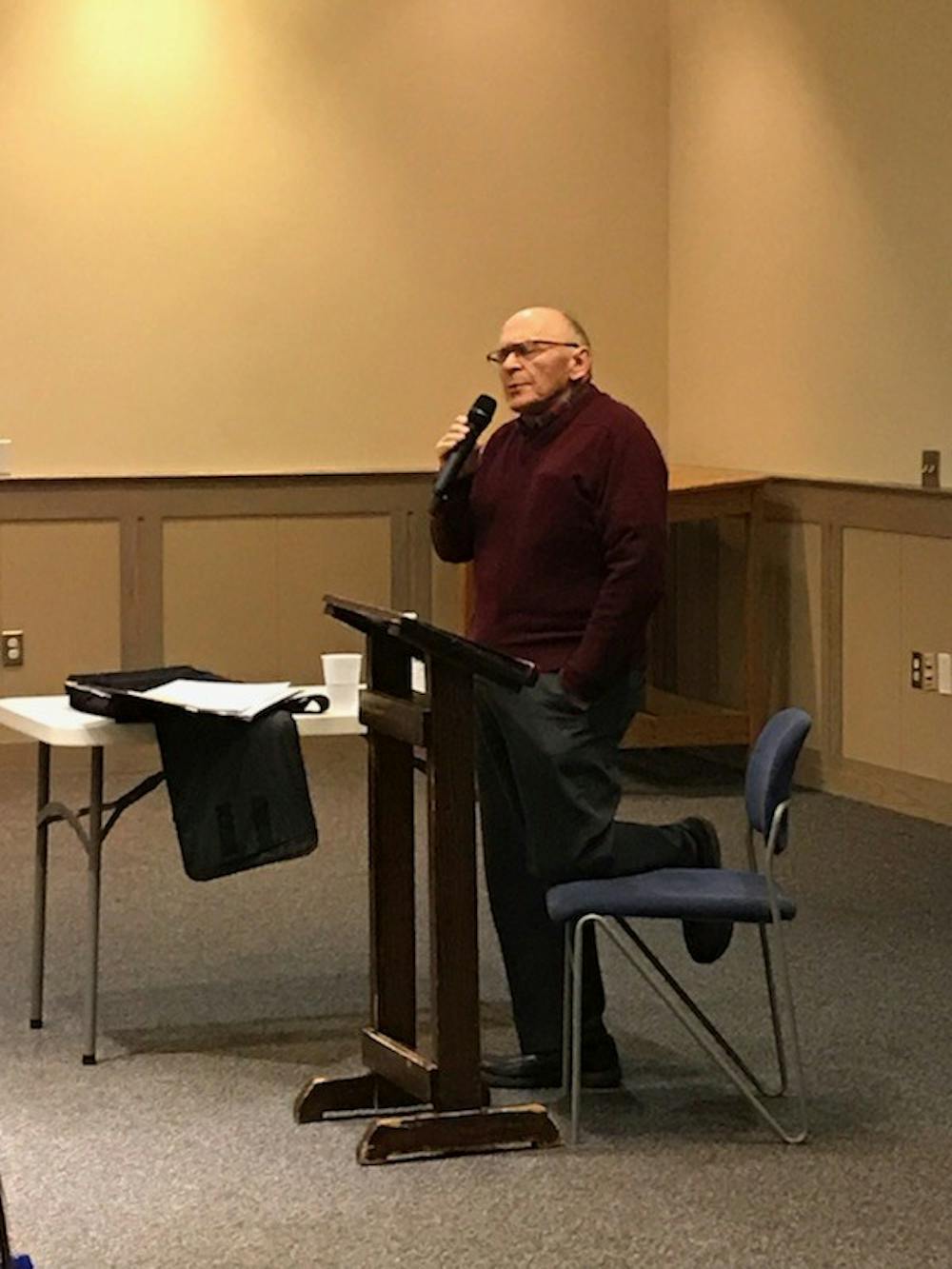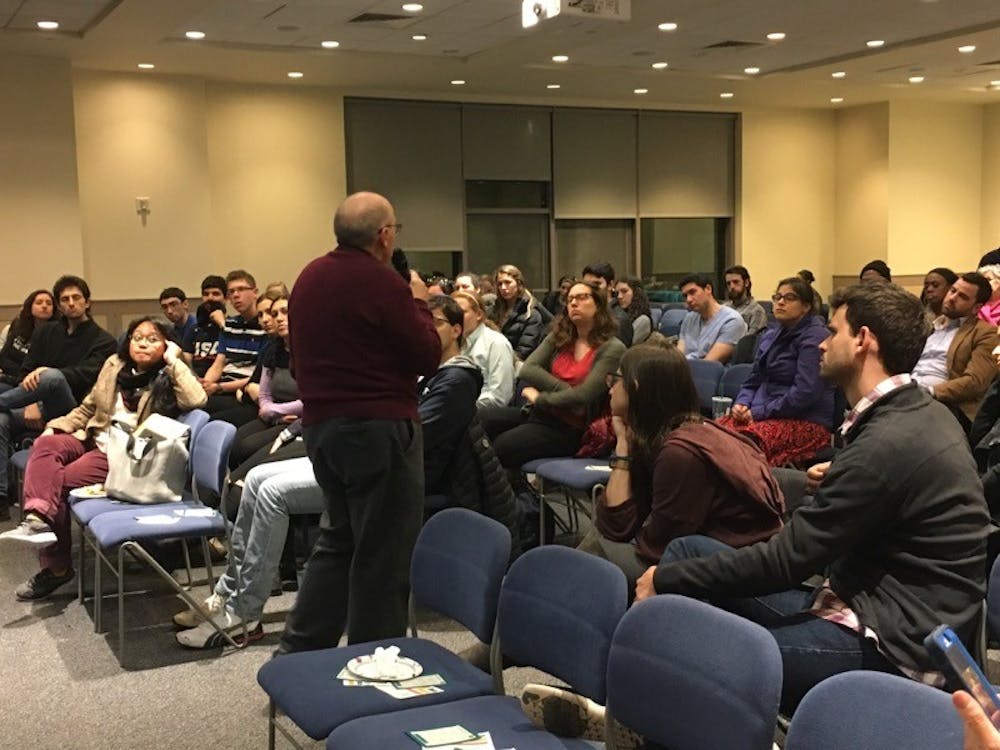Last Wednesday night, people crowded Hillel’s second floor to listen to Peter Stern’s life story. Peter Stern is 81. He lives in Haverford. He’s a retired teacher. And he gives speeches at middle schools and high schools and at places like Penn.
There were snacks at the back of the room: popcorn, grapes, spinach dip. The organizers encouraged us to partake, and we did so, albeit reluctantly. The snacks felt incongruous with the purpose of the event—we had gathered to hear Stern talk about his childhood as a Jewish boy growing up in Nazi Germany.
The crowd, listening to Stern recite his story, was quieter than usual audiences at Penn. No one reached for their phone, checking for the time or texting a quick reply. Out of respect, out of captivation. They didn’t get up for more of the chips that waited at the back of the room. They weren’t distracted; they just absorbed.

Courtesy of Repair the World Philadelphia
Stern recounted his childhood memories, beginning with his early childhood in Nuremberg, Germany. In November of 1941, Stern’s family was deported to Latvia, then to a ghetto called Riga, then to a camp in Russia. Stern told his story bluntly, but his then–child’s perspective illuminated the traumatic narrative with curiosity and at times, impossibly, wonder.
Stern’s decades–old memories were often isolated images. Firsthand details emerged as small snippets, snapshots of a childhood plagued with distress.
He remembered catching toads with his brother while imprisoned in Russia. He remembered the badges the Nazis forced people to wear, and how all prisoners were forced to march the streets together.
“All the prisoners had to wear a badge indicating what crime they were responsible for,” he said. He pauses, remembering. “So Jews had the yellow star. Pink triangle for being a lesbian. Red circle, I think it was, for being communist.”
Stern, his mother, and his younger brother were placed in Bergen Belsen, the concentration camp, before their eventual freedom in 1945. In 1947, the family immigrated to the United States. Stern lived in Florida with his uncle, where he noticed the parallels between the Jewish plight and that of Black Americans.
The event’s organizers, representatives from the philanthropic organization Repair the World, supplied another microphone so the audience could ask questions. One man asked Stern how he feels about the neo–Nazi resurgences, like the rallies in Charlottesville last August.
“I describe myself as an intellectual pessimist and an emotional optimist,” Stern said.
He cautioned against sanding down the jagged edges of history. Once, he took a Black History course at the university where his wife worked. He thought the curriculum was incomplete, that it didn’t properly display the atrocities that occurred.
"Just because it didn’t happen in the lives of these kids, it didn’t mean that it couldn’t happen again,” Stern said. “And the ability to forget is the surest way of guaranteeing—not that it will happen again—but that you will lose what you take for granted.”
Another audience member asked if atonement—by Germany, and by the United States, for its own crimes—is conceivable.
“I don’t know if true atonement is ever possible,” Stern said. “Acknowledgement is something you have to do. And Germany, more so than the United States, has done that. But I don’t know if you can atone for the sins of your father.”
Stern then had a question for the audience: "What’s the purpose of hearing the stories of Holocaust survivors?"
A woman raised her hand. “The implications for kids today, even in America—it’s things that are alive,” she said. “It doesn’t matter if it’s in Germany, or in the States, or in Israel, there’s lessons that can be learned anywhere.”
Stern offered his own reasons for telling his story. “I ask a very simple thing: that kids realize that it takes very little to do a small thing. And it’s the small things that are going to count,” he said.
Earlier in the evening, someone had asked Stern how he grapples with his own story, the childhood memories he must revisit each time he goes somewhere to tell his story. It’s something that had crossed his mind often.
“I ask: why is it that I survived?" Stern said. "I received a lot of love. I had courageous parents. And a lot of luck.”

